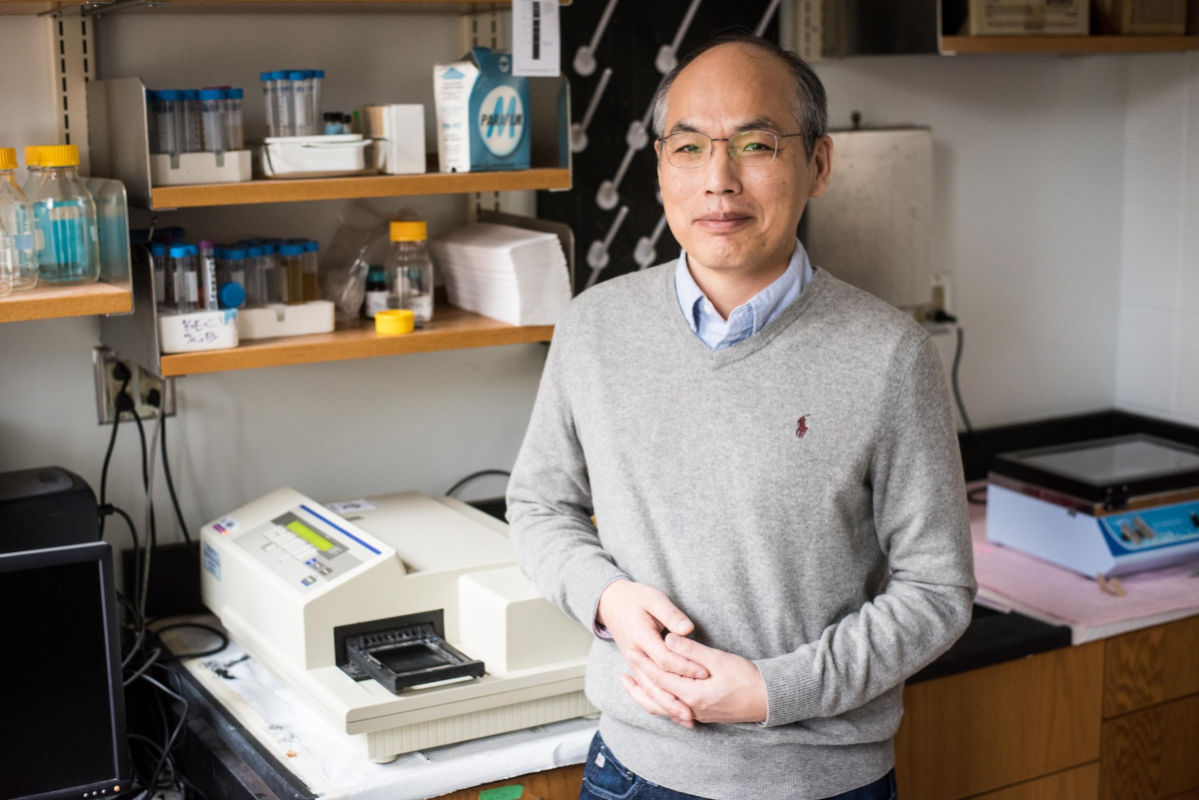New clues about next-generation insecticides
As insects become resistant to current insecticides, researchers are looking for new options to protect crops and prevent disease. In research published in Nature Communications, a team led by Seok Yong-Lee, PhD, George Barth Geller Distinguished Professor of Molecular Biology, reveals insights about how insects sense their environment and how certain insecticides disrupt that process.
How nature makes a powerful class of antibiotics
Researchers led by Ken Yokoyama, PhD, have revealed a long-sought missing step in how a powerful new class of antibiotics are produced in nature — insight that could guide discovery or design of new antimicrobial drugs.
Sai Kwan Khal Receives Summer Fellowship
Sai Kwan Khal, a PhD student in the lab of Michael Boyce, PhD, has been awarded a competitive Summer Research Fellowship for Summer 2026 from the Duke University Graduate School.
Team LAMTx Takes Top Honors in Structural Biochemistry II Shark Tank Challenge
The final project for Structural Biochemistry II (BCH659) culminated in an exciting “Shark Tank”-style competition, where student teams pitched innovative biotech concepts to a pa
How a Tiny Enzyme Helps Build a Big Brain
When your brain was forming, an enzyme had to pull off a powerful chemical reaction. One wrong move, and the process could fail — leading to a rare disorder that causes seizures and, ultimately, death. Now, researchers at Duke University School of Medicine have uncovered how this enzyme called MoaA tames one of nature’s most reactive chemical players to make this life-or-death reaction happen.
New enzymes promise cheaper, cleaner drug production
A pair of newly discovered enzymes could change drug manufacturing, reducing both costs and environmental harm. Researchers at Duke University School of Medicine showed that one of the enzymes is sufficient to make azetidine, an organic compound and a building block of a wide range of therapeutics, including antibiotics, antiviral drugs, and cancer treatments.
Could a Gout Drug Point to a New Treatment for Sickle Cell Disease?
Sickle cell disease (SCD) is a serious genetic condition that affects red blood cells, causing them to become misshapen and sticky. It affects at least 100,000 people in the U.S., leading to blood clots, painful blockages in blood vessels, and shortened lifespans. Researchers in the Duke Department of Biochemistry have discovered a key biological pathway that contributes to these complications. Their findings also suggest a promising treatment strategy: blocking a protein that initiates the process using a drug that’s approved for gout treatment in some countries.









